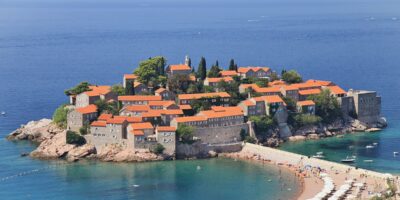Journalism today is a tough gig. Reporters are facing all kinds of threats around the world whether it’s dodging missiles in Gaza or dealing with crackdowns in Russia and Ukraine. Many have lost their jobs, some even their lives, just for doing what they do best-telling the truth. And if that wasn’t enough, a new report on media freedom in Europe shows that even in so-called peaceful regions, journalists are struggling with poor working conditions and political pressure.
The 2024 report, titled Facing Political Pressure, Disinformation, and the Erosion of Media Independence, highlights how press freedom is under fire across the continent. Montenegro, for example, stands out for all the wrong reasons many journalists there work without formal employment, meaning they don’t have proper social protection. Sounds like a nightmare, right?
On the legal front, there’s some good news. Courts in Montenegro have been stepping up, actually punishing those who threaten or attack journalists. But let’s not get too excited there’s still a long way to go. The report, prepared by partners of the Platform for the Promotion of Journalist Protection for the Council of Europe, includes recommendations for stronger legal protections, fighting disinformation, and preventing government surveillance of the media. Basically, they’re telling European governments: “Hey, do better.”
It’s not just Montenegro, though. Across Europe, authorities have failed to properly investigate crimes against journalists. A glaring example? The unsolved 2004 murder of Duško Jovanović, editor-in-chief of Dan.
And when it comes to decent working conditions, only four out of 35 European countries Denmark, Germany, Ireland, and Sweden seem to be doing it right. Meanwhile, Croatia, Montenegro, and Romania? Not so much. Journalists there, especially freelancers, are often left to fend for themselves, without basic social security.
Local and regional journalists are hit the hardest. They get paid less, have fewer resources, and often no access to social security. In Central and Eastern Europe think Bulgaria, Hungary, Serbia these challenges are even worse.
Working in media there is like running an obstacle course blindfolded. Low wages, zero institutional support, and barely any resources? Not exactly a recipe for fearless investigative journalism.
And let’s talk about women in journalism. The report points out that female journalists get the short end of the stick they earn less, struggle to get promoted, and are more likely to be harassed both online and offline.
No surprises there. If you’re a young journalist or a freelancer, things aren’t much better. Many are stuck with short-term contracts or paid per article, which is basically a financial rollercoaster with no seatbelt.
At the end of the day, bad working conditions don’t just hurt journalists they affect all of us. When reporters are underpaid, overworked, and constantly worried about job security, the quality and independence of journalism take a hit. And that means fewer watchdogs keeping an eye on the people in power.
The message from this report is clear: if we want a strong, independent press, European governments need to step up. Better protections, fair wages, and actual enforcement of press freedom laws aren’t too much to ask for. After all, democracy kind of depends on it.
Written by our correspondent A.A.



